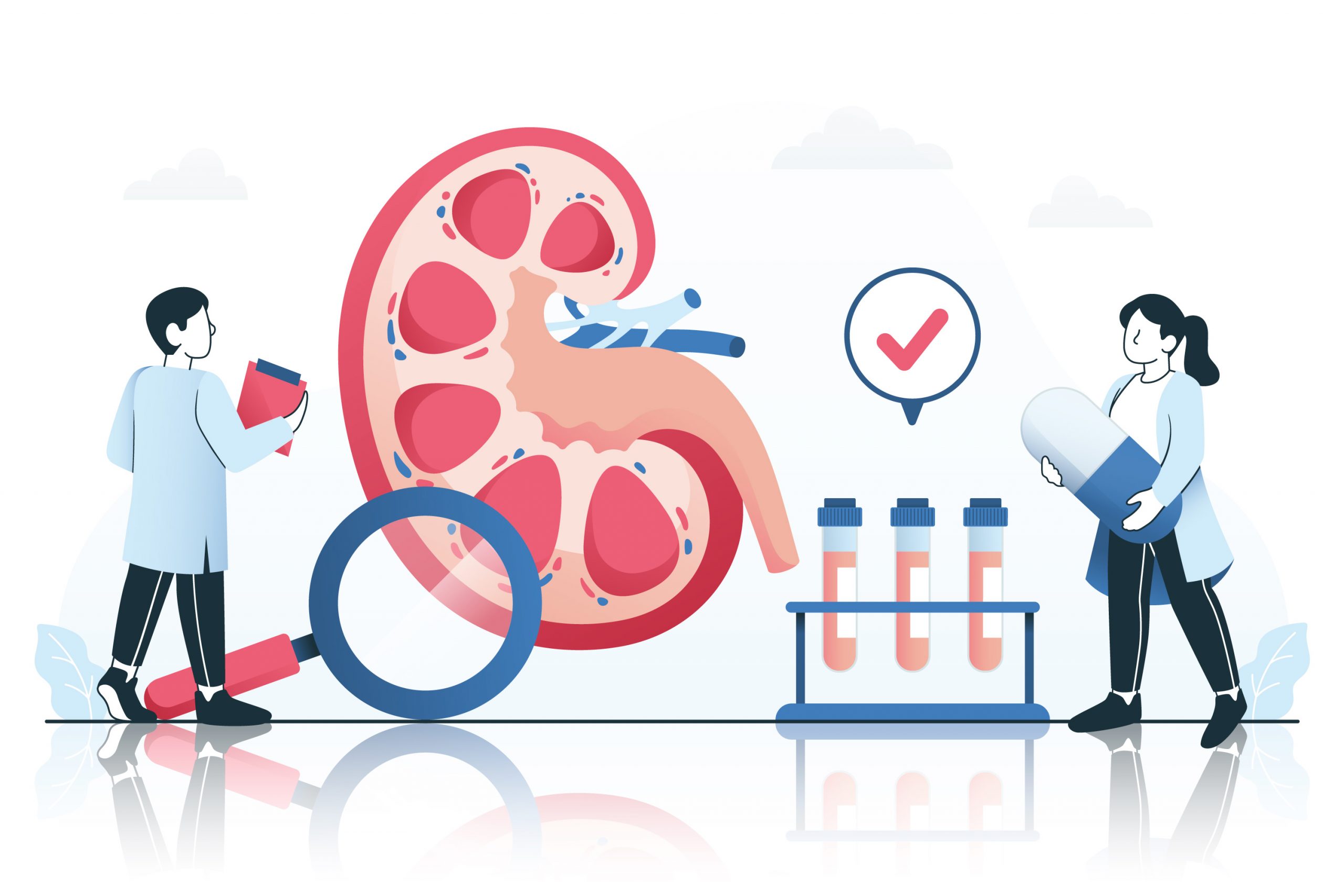

A significant cardiovascular risk factor, diabetes, and hypertension are frequently present in patients with chronic kidney disease (CKD). Despite the disease’s high prevalence—10% of people worldwide have CKD—, there have only been a few methods available to assess the risk of cardiac events for chronic kidney disease patients. In a recent study, researchers from the Perelman School of Medicine at the University of Pennsylvania discovered that a new proteomic risk model for cardiovascular disease was more precise than existing methods of assessing cardiac risk. the investigation revealed in today’s European Heart Journal article.
The extensive study of proteins known as proteomics was used by Penn experts to create a model. The proteins function as a specific kind of biomarker that can be used to detect illnesses in the body.
In 2,667 CKD patients from the Chronic Renal Insufficiency group (CRIC) and the Atherosclerosis Risk in Communities (ARIC) group, the researchers looked at nearly 5,000 proteins. At the start of the research, all participants had CKD and no history of cardiovascular disease.
A participant’s blood sample was used by the Penn, Johns Hopkins, and University of California, San Francisco team to determine a patient’s likelihood of experiencing a cardiac episode. To determine which proteins could most accurately help detect the risk of cardiovascular disease, they evaluated 4,628 different proteins using the model. Researchers used machine learning techniques to select 32 proteins from among the thousands of proteins assessed to make up their proteomic risk model.
“The future is bright. In an era of personalized medicine, these findings indicate a new route for future research into therapeutic targets,” said Rajat Deo, MD, MTR, an associate professor of Cardiovascular Medicine at Penn Medicine. “The ability to personalize risk assessment for individual patients with CKD is the first step toward scaling this for larger health systems.”
Comparing this new model to the 2013 ACC/AHA Pooled Cohort Equation (PCE), which offers recommendations for best practices in measuring cardiovascular risk, and a modified PCE that included an estimated glomerular filtrate rate, it was discovered that the new model was more accurate in identifying those at risk of developing future cardiovascular disease. (eGFR). An eGFR tells medical professionals how much creatinine, a specific waste product, is present in a patient’s blood.
Over a period of ten years, the measured incident cardiovascular event incidence was 60% for those with the highest measure of predicted risk. Patients and their providers will surely be very interested in the accurate identification of such high-risk people with no prior history of cardiovascular disease for the purpose of preventative care measures.
Researchers were able to find several proteins, including cartilage intermediate layer protein 2 (CILP2), that can be used in future studies to detect cardiac risk or be the target for novel therapies, in addition to showing that this model was more accurate than existing approaches.
All data connected to this study will be publicly available. “We’re laying it all out for researchers around the world to be able to access and make further strides in this field,” said Deo.
more recommended stories
 Nanovaccine Design Boosts Immune Attack on HPV Tumors
Nanovaccine Design Boosts Immune Attack on HPV TumorsKey Highlights Reconfiguring peptide orientation significantly.
 High-Fat Diets Cause Damage to Metabolic Health
High-Fat Diets Cause Damage to Metabolic HealthKey Points Takeaways High-fat and ketogenic.
 Acute Ischemic Stroke: New Evidence for Neuroprotection
Acute Ischemic Stroke: New Evidence for NeuroprotectionKey Highlights A Phase III clinical.
 Statins Rarely Cause Side Effects, Large Trials Show
Statins Rarely Cause Side Effects, Large Trials ShowKey Points at a Glance Large.
 Anxiety Reduction and Emotional Support on Social Media
Anxiety Reduction and Emotional Support on Social MediaKey Summary Anxiety commonly begins in.
 Liquid Biopsy Measures Epigenetic Instability in Cancer
Liquid Biopsy Measures Epigenetic Instability in CancerKey Takeaways Johns Hopkins researchers developed.
 Human Antibody Drug Response Prediction Gets an Upgrade
Human Antibody Drug Response Prediction Gets an UpgradeKey Takeaways A new humanized antibody.
 Pancreatic Cancer Research: Triple-Drug Therapy Success
Pancreatic Cancer Research: Triple-Drug Therapy SuccessKey Summary Spanish researchers report complete.
 Immune Cell Epigenome Links Genetics and Life Experience
Immune Cell Epigenome Links Genetics and Life ExperienceKey Takeaway Summary Immune cell responses.
 Dietary Melatonin Linked to Depression Risk: New Study
Dietary Melatonin Linked to Depression Risk: New StudyKey Summary Cross-sectional analysis of 8,320.

Leave a Comment